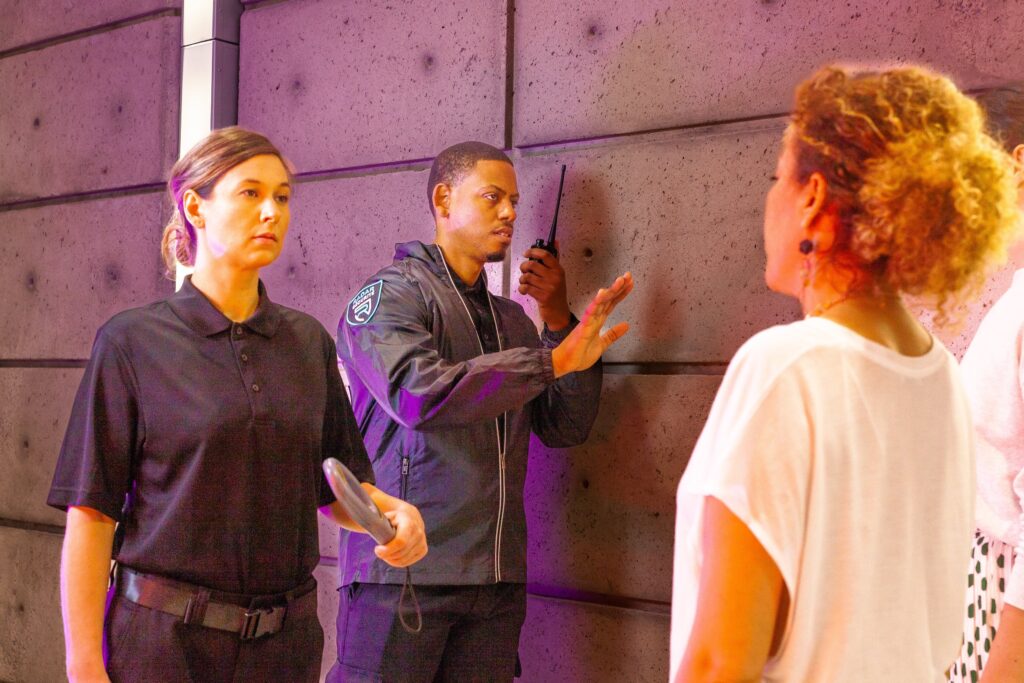It is our priority to help security professionals understand the tools and techniques necessary to manage the critical situations that can arise in a security career. Security officers can take advantage of specialized training and hone their skills, knowledge and abilities to become the heroes of tomorrow.
Prepare yourself mentally
Mental conditioning is essential for improving learning and retention of new skills. Its purpose is to eliminate ineffective habits, control stress and improve decision-making, physical performance and confidence. It can also reduce the risk of post-traumatic stress disorder.
Communicating non-verbally There are five methods of communication: verbal, reading, writing, listening and non-verbal. Humans use non-verbal communication about 90% of the time. We are rarely aware that personal space, visual communication, posture, gestures and facial expressions can establish good communication.
Effective listening and verbal communication
Active listening can tell you if someone needs help or if someone is avoiding a conversation and also give information about a person's emotional state and physical/mental condition. Security professionals must also be skilled at relaying a message verbally; verbal communication is one of the most powerful tools in security when it comes to de-escalation techniques.
Managing the stages of conflict
Conflict can be the result of unmet expectations and 90% of the time it is related to past experiences. There are generally three stages of conflict: anxiety, emotional confrontation and physical aggression. Proper management of the situation can make a person feel more secure in managing their emotions, even unconsciously. There are various techniques and strategies for gaining or regaining control of a situation.

